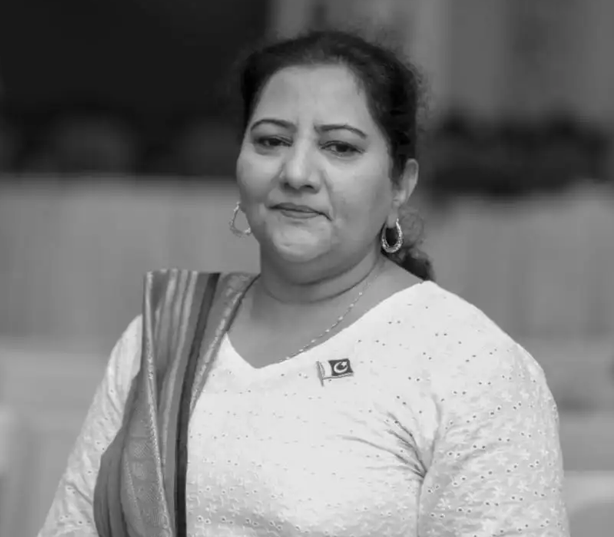By: Nabila Feroz Bhatti
This year, instead of its usual date of March 8, Aurat March Lahore will be held on February 12, coinciding with Pakistan’s National Women’s Day. The theme for Aurat March 2025 is “Feminist History”—a tribute to the past and ongoing feminist struggles in the country. The march will commemorate the courageous women of organizations like the All Pakistan Women’s Association (APWA), Sindhiani Tehreek, Alliance Against Sexual Harassment (AASHA), Pakistan Women Lawyers’ Association (PWLA), Women’s Action Forum (WAF), and the labor movement. These groups fearlessly resisted General Zia-ul-Haq’s oppressive regime and fought for women’s rights and democratic values.
In Pakistan, February 12 marks a significant milestone in the women’s rights movement. On this day in 1983, despite martial law restrictions banning political activity, processions, and public protests, a group of women took to the streets to challenge the military dictatorship of General Zia-ul-Haq. The demonstrators—lawyers, teachers, social workers, and laborers—organized under WAF and PWLA to march toward the Lahore High Court. Their goal was to protest against the discriminatory Law of Evidence, which proposed reducing the testimony of a woman to half that of a man.
Khawar Mumtaz, a WAF member and former chairperson of the National Commission on the Status of Women, recalls the harrowing events of that day. “Section 144 had been imposed, so we planned to reach the high court in small groups of twos and threes. My 10-year-old daughter was with me. But when we reached Hall Road, near the AGHS Legal Aid Cell, we saw that the area was already heavily cordoned off by police,” she said.
The protest escalated when poet Habib Jalib recited his revolutionary verses. Suddenly, Mubaraka, a member of the Democratic Women’s Association, broke through the police barriers, signaling others to follow. In response, security forces launched a brutal baton charge and fired tear gas at the demonstrators. Many women were arrested and detained.
Despite the repression, the women remained defiant. “Inside the police station, we sang revolutionary songs and managed to get a press statement out,” Khawar recalls. “At the time, I was teaching at Punjab University, and Madeeha Gohar was at Kinnaird College. Both of us lost our jobs because of our activism.”
During the 1980s, the state weaponized religious forces to consolidate power. Political parties were silenced, the press and academia were censored, and student and trade unions were banned. While the Movement for the Restoration of Democracy (MRD) was active in Sindh, Punjab remained largely subdued. However, the women’s demonstration on February 12 became a defining moment of resistance, symbolizing a broader struggle for democracy and equality.
Neelam Hussain, a WAF member and executive coordinator of Simorgh Women’s Resource and Publication Centre, recalls another case from 1982 that ignited feminist activism. A man named Allah Bux was sentenced to death by stoning, while his wife, Fehmida, a minor, was sentenced to 100 public lashes. Women’s groups protested vehemently, leading to a retrial and the couple’s eventual acquittal.
WAF was born from these struggles and remains a powerful voice against injustice. Over the years, it has taken strong stances on various issues, from protesting the Iraq-Kuwait war in 1990 to opposing the inclusion of religion in national identity cards and the separate electorate system. WAF members also played a key role in establishing the Joint Action Committee for People’s Rights (JAC) in 1986, a vital human rights forum.
Since its inception in 2018, Aurat March has gained momentum, led by young feminists advocating for an end to patriarchy. While senior feminists support them, the movement is primarily youth-driven. Besides the annual march on March 8, activists engage in year-round efforts, including press releases, demonstrations, and artistic projects.
However, their activism has not been without backlash. Due to the deeply entrenched patriarchal and fundamentalist mindset in Pakistan, Aurat March participants have faced cyber harassment, public sexual harassment, and stigmatization. These challenges highlight the urgent need for the state and society to recognize women as equal citizens, implement pro-women policies, and ensure safe civic spaces.
Hadia, a volunteer with Aurat March Lahore, outlines the objectives for 2025:
- Honoring Feminist Foremothers – “We stand on the shoulders of many feminist foremothers who came before us. We honor them.”
- Resisting Historical Erasure – “We must ensure that the struggles of women, transgender people, and resistance movements are not erased from our collective memory.”
- Fighting for Unfinished Agendas – “Many of the issues we fight for today—safety from violence, bodily autonomy, dignified labor, freedom of religion and speech, and democratic values—are the same battles our foremothers fought.”
Nadia, another Aurat March volunteer, told The Express Tribune: “Celebrating each other’s struggles is important to keep hope alive. Our feminist history teaches us not just about conflict and anger, but also about joy and resilience. With this year’s theme of ‘Feminist History,’ we aim to highlight the often-overlooked indigenous feminist movements that have paved the way for us.”
While Pakistan’s feminist movement has made significant strides, many battles remain. Today, Baloch women are at the forefront of resistance, fearlessly leading the movement. The Waak Tehreek is carving out spaces for women within the Pashtun movement, advocating for political, economic, social, and legal rights.
Aurat March 2025 seeks to honor these past and present struggles. It invites all those who believe in equality and democracy to join the march on February 12, commemorating the historic 1983 protest on Lahore’s Mall Road—when brave women defied tyranny and stood against Zia’s draconian laws.
About Author:
Nabila Feroz Bhatti is a human rights activist and columnist. She is a Member of the Working Group at the National Commission on the Rights of the Child. She can be reached at [email protected] or on X: @NabilaFBhatti.


